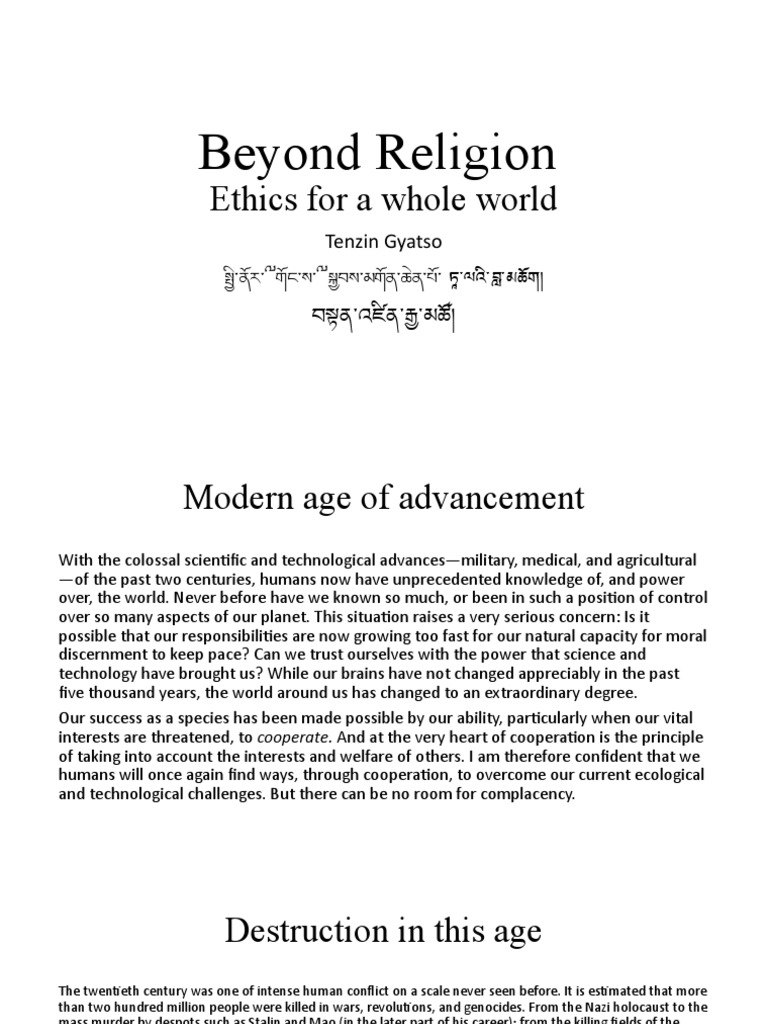The quest for truth is an intrinsic aspect of human existence. From ancient times to the modern era, individuals have wrestled with the question of how to navigate the labyrinth of spiritual beliefs that delineate our world’s myriad religious landscapes. In this pursuit, one is often faced with the daunting task of selecting a religious guide, a mentor whose insights might illuminate the enigmatic path to understanding. The Bahá’í teachings offer profound perspectives on this quest, emphasizing a unity of faith that transcends traditional confines and encourages seekers to embark on a transformative journey of discovery.
When contemplating the notion of a religious guide, the first imperative is to consider the essence of truth itself. Truth, as an abstract, has a tendency to morph depending on the lens through which it is perceived. The Bahá’í Faith teaches that all religious traditions spring from the same divine source, and thus share fundamental principles that advocate love, compassion, and justice. This perspective serves as an antidote to the prevalent dissension often found between various religious groups, urging individuals to seek commonality rather than divisiveness.
In this landscape, the selection of a guide becomes an exercise in discernment. A religious guide should not merely embody a rigid set of doctrines but should emanate the spirit of inquiry. This openness fosters an environment conducive to dialogue and exploration. As one navigates through the diverse textual exegeses and philosophical underpinnings of different faiths, it is paramount to maintain an attitude of intellectual humility. Recognizing the limitations of one’s own understanding allows for the appreciation of multiplicity in perspectives. The Bahá’í teachings advocate for a genuine pursuit of knowledge, urging followers to delve into various religious writings and engage with those whose beliefs differ from their own.
As seekers embark on this quest, a pivotal question arises: How does one measure the authenticity and wisdom of a guide? The Bahá’í teachings present a multi-faceted approach to discernment. Foremost, a guide’s character serves as the cardinal indicator of credibility. A life lived in accordance with the principles of virtue — such as integrity, service, and selflessness — speaks volumes more than mere academic accolades or ecclesiastical titles. Moreover, the effectiveness of a guide can often be discerned through their ability to inspire a profound shift in perspective. This transformative effect is not simply about altering perceptions; rather, it involves provoking curiosity and igniting a sincere desire for further exploration.
Equally important is the flowing dialogue between a guide and a seeker. Engagement in meaningful discourse not only enhances the seeker’s understanding but also reinforces the guide’s own grasp of the principles they espouse. In this vein, the Bahá’í Faith encourages a reciprocal relationship, wherein both parties contribute to an evolving understanding of truth, elevating the spiritual discourse beyond mere didacticism. Thus, an ideal guide engages not only as a teacher but also as a fellow traveler on the path of enlightenment.
Moreover, the Bahá’í perspective invites seekers to transcend the restrictive labels often ascribed to various religious traditions. In a world densely populated with sectarian identities, the knee-jerk reaction may be to gravitate towards the familiar or the culturally endorsed. However, understanding and embracing the diversity of religious expressions enriches the search for truth. Labels, while sometimes useful organizational tools, can ultimately serve to limit our understanding. Instead of allowing them to confine our spiritual journeys, it is beneficial to adopt a broader view that encompasses the universal teachings of love and harmony found across faith traditions.
Equipped with these insights, seekers are better prepared to embark on their spiritual quest. It is a journey marked by several vital stages: inquiry, reflection, and undaunted perseverance. The initial stage involves actively engaging with different texts, dialogues, and practices, and questioning preconceived notions. Grounded in the Bahá’í teachings, seekers are encouraged to suspend judgment and approach new ideas with an open heart and mind.
Following inquiry, reflection becomes paramount. This phase is characterized by an introspective examination of one’s beliefs and the resultant emotional landscape. During this cessation of external noise, profound insights often arise, illuminating paths previously obscured. The Bahá’í teachings underscore the importance of meditation and prayer as tools for anchoring the soul and fostering connection with the divine.
Yet, perhaps the most formidable challenge lies in the stage of perseverance. In a world rife with distractions and contradictions, the steadfast pursuit of truth requires not only determination but also a deep-seated faith in the process itself. It necessitates patience, recognizing that the revelation of truth is often an iterative phenomenon, revealing itself layer by layer over time. Here, the teachings of Bahá’u’lláh echo the sentiment that “truth is the most powerful weapon in the world,” affirming the necessity of gaining knowledge as a means to cultivate wisdom.
Through the process of selecting a religious guide, the Bahá’í principles serve as a beacon illuminating the path toward a more profound engagement with spirituality. This quest transcends mere affiliation; it metamorphoses into a participatory exploration of life’s deepest questions. By embodying the spirit of inquiry, cultivating reflective practices, and embracing the notion of unity in diversity, seekers find themselves poised to traverse the intricate terrain of belief, ultimately arriving at revelations that resonate deeply within their souls.
Thus, in the delicate interplay between guide and seeker, a new paradigm emerges — one that promotes a quest for truth without the constraints of labels. This transformative journey, enriched by the wisdom of Bahá’í teachings, invites all to delve deeper into the vibrant tapestry of humanity’s collective spiritual heritage.
